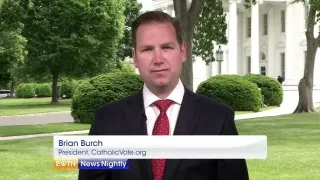
3 hours ago
Federal Judge Blocks Trump Administration’s Efforts to Defund ‘Essential’ LGBTQ+ Health Research
READ TIME: 3 MIN.
A United States district court judge has issued a decisive ruling blocking the Trump administration’s move to defund a wide range of research grants supporting essential health research for sexual and gender minorities, including critical studies on HIV and related health disparities. The ruling, delivered by the U.S. District Court for the District of Maryland on August 1, 2025, found that the administration’s actions amounted to unlawful discrimination and violated federal statutes protecting both researchers and the communities they serve .
The court’s order prevents the National Institutes of Health (NIH), operating under the Department of Health and Human Services, from withdrawing funding from GLMA: Health Professionals Advancing LGBTQ+ Equality and 16 other researchers. These grants, crucial for advancing health outcomes among LGBTQ+ populations, had been abruptly terminated or withheld from review in recent months, prompting swift legal action .
The lawsuit, *GLMA v. NIH*, was spearheaded by Lambda Legal and joined by Crowell & Moring LLP and Bryan Cave Leighton Paisner LLP. Plaintiffs argued that the NIH’s actions unlawfully targeted LGBTQ+ health research, violating the Fifth Amendment’s equal protection clause and Section 1557 of the Affordable Care Act, which bars discrimination in federally funded health programs .
In its decision, the court determined that the grant terminations and funding denials were “arbitrary and capricious,” ordering that funding for the affected grants be restored immediately. The judge further emphasized the discriminatory nature of the administration’s directives, stating, “This represents discrimination against America’s LGBTQ community. That’s what this is. I would be blind not to call it out. My duty is to call it out, and I do so” .
The Trump administration’s efforts to cut funding for LGBTQ+ health research had far-reaching implications. According to public records and an analysis by The New York Times, more than $800 million in research funding was canceled, affecting hundreds of studies on cancer, HIV prevention, and other health conditions disproportionately impacting sexual and gender minorities .
Projects targeted included a $41 million HIV prevention study at Florida State University, which aimed to reduce infection rates among adolescents and young adults—a group that accounts for approximately 20% of new HIV infections in the United States each year. Many LGBTQ+-focused research teams reported staff layoffs and halted clinical trials due to the funding freeze. In correspondence with affected researchers, the NIH stated that LGBTQ+ health studies “no longer effectuates agency priorities,” and criticized projects for focusing on “gender identity” or “amorphous equity objectives” .
Simon Rosser, a professor at the University of Minnesota whose lab studies cancer in LGBTQ+ populations, noted the chilling effect of the funding cuts: “The moves have created a hierarchy of patients, with some seen as more worthy than others,” he told The New York Times .
The Maryland court’s ruling echoes a similar decision from the U.S. District Court for the Northern District of California, which in June 2025 blocked the implementation of Trump administration executive orders threatening to defund LGBTQ+ and HIV-serving nonprofits. That court found that the administration’s directives would cause “immense harm” to organizations providing life-saving services, including those supporting transgender people and people living with HIV .
Legal advocates have hailed these rulings as crucial victories for LGBTQ+ rights and public health. Jose Abrigo, Lambda Legal’s HIV Project Director, stated, “The Court blocked anti-equity and anti-LGBTQ executive orders that seek to erase transgender people from public life, dismantle DEI efforts, and silence nonprofits delivering life-saving services. Today’s ruling acknowledges the immense harm these policies inflict on these organizations and the people they serve and stops Trump’s orders in their tracks” .
The restoration of funding for LGBTQ+ health research is expected to have an immediate positive impact, allowing researchers to resume studies and reinstate services vital to the health of LGBTQ+ populations. However, advocates warn that continued vigilance will be necessary to protect these gains in the face of ongoing political challenges.
The legal battles over LGBTQ+ health research funding underscore the importance of upholding civil rights protections and ensuring that medical research addresses the needs of all communities. For many researchers and advocates, the recent court rulings represent not only a restoration of funding but also a reaffirmation of the dignity and rights of LGBTQ+ people in the United States.






